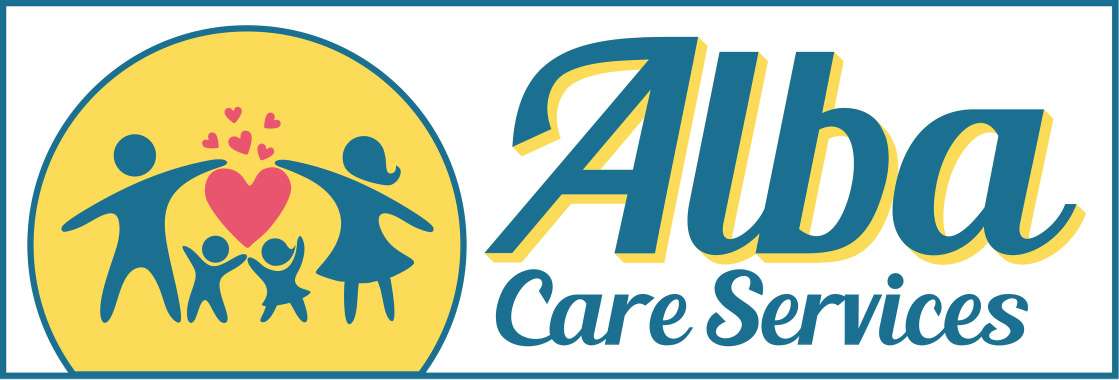Fostering is a rewarding experience that gives you the opportunity to provide temporary care for a child in need. As a foster parent in Victorville, you will have the privilege of giving children who are unable to live with their biological family a safe and nurturing environment where they can grow.
If you think you have what it takes to become a parent, the first step is to contact the professionals at Alba Care Services by dialing 951-653-2224. They will be able to provide you with more information about the specifics of fostering in Victorville, including application requirements and training programs.
Who Can Become a Resource Parent?
Alba Care Services proudly invites foster and adoptive parents of any kind – whether you’re a single parent, a married couple, an unmarried couple, or divorced, whether you rent or own an apartment or house; no matter your race, religion, or sexual orientation – to join our foster family! We understand that being a parent can be hard work so we support working parents with appropriate childcare as well.
If you’re interested in becoming a parent or learning about adoption services in Victorville, California, don’t hesitate to reach out to Alba Care Services today at 951-653-2224.

How To Become Foster Parents
The process of becoming a parent in Victorville can be overwhelming, but Alba Care Services will guide you through each step.

In order to become a foster parent in Victorville, you must:
-Be at least 21 years old
-Possess a valid driver’s license
-Provide proof of insurance
-Have at least one extra bedroom in the home (rented or owned)
-Pass a screening process
-Complete the required training
Once you have met all of the requirements, Alba Care Services will assist with the paperwork, home study visit, and other steps to complete your adoptive parent application. Once approved, you can begin the process of becoming an active adoptive parent in Victorville!
Foster Children
Foster parenting is both a rewarding and challenging experience. It can provide stability, safety, and care for a child who has experienced trauma or neglect. As such, it is important that you are prepared to meet the physical, emotional, and medical needs of the children in your home.
It’s important to remember that children’s behavior is often a result of their past experiences and that behaviors may not always be indicative of the child’s true character. Many children that are placed with foster families have experienced horrible things like physical or sexual abuse or have been severely neglected and unloved. Because of this, many children develop physical and emotional problems. Abused and neglected children have trouble moving into a new foster home so they need a safe space where they can get used to their new life.
Therefore, it’s important for the adoptive parent or parents to provide consistent structure and a stable family-type setting in order to help children adjust to their new home environment or with other family members. Unlike other foster care agencies, Alba Care Services will work with you to ensure that each child is receiving the necessary support throughout their stay in your home.

Support Services For Resource Families & Their Foster Child
At Alba Care Services, we understand that it can be daunting to become an adoptive parent. We provide guidance and support through the entire process of becoming a resource family including:
-Assistance with completing the paperwork for licensing
-Support in finding placements and developing relationships with social service agencies
-Ongoing support in providing a safe and nurturing home environment
-Guidance in understanding the needs of children placed in your care
-Advice on parenting, including positive discipline techniques
-Help with developing communication skills to effectively interact with children who have experienced trauma.

We also offer training classes and seminars for foster parents to help them stay up to date on the latest foster care best practices. Our classes cover a variety of topics such as understanding trauma and its effects, working with adolescents in foster care, managing difficult behaviors, and more, and are a great resource for the entire resource family.
We understand that becoming a resource family can seem like an overwhelming process at first. Our knowledgeable staff is here to provide you with support every step of the way. We can provide resources, advice, and guidance to help you create the best environment for your foster children. We will also be available to answer any questions or concerns you may have throughout the foster care process.
Financial Assistance
We are also here to help you with the financial aspects of becoming an adoptive parent. We provide assistance for some of the costs associated with caring for a child, such as clothing and medical supplies. In addition, we can help you apply for state and federal benefits which may be available to you as a resource family.
It is important to remember that becoming an adoptive parent is not solely about the monetary commitment. Being an adoptive parent can be one of the most rewarding experiences in life, and you will make a difference in the lives of children who need care and support. We are here to guide you through every step of the foster care process.
If you would like us to answer questions or would like the criteria for becoming an adoptive parent explained in greater detail, please contact us. We look forward to hearing from you and helping you to change a child’s life! 951-653-2224

Frequently Asked Questions
What’s the best foster family agency in San Bernardino County?
If you ask us, Alba Care Services is the best foster family agency in San Bernardino County. The Department of Children and Family Services (DCFS) is also a very good resource for finding foster care agencies in San Bernardino County, Los Angeles County, and the surrounding areas.
What is an emergency placement?
An emergency placement is a temporary arrangement for a child who requires immediate care due to a current crisis situation or when an appropriate family is not available. Emergency placements are usually provided for a short period of time until the child can be placed with a suitable family or returned to his/her original home.
How often do social workers usually visit a foster home?
Social workers typically visit foster families once a month to check on the well-being of the child or children in their new home. A social worker will also conduct regular reviews and assessments of the family’s progress in providing for the children’s needs. Additionally, social workers may be called upon for emergency visits if there are urgent concerns about the safety or health of any child in the home. Ultimately, the frequency of visits is dependent upon state regulations and the needs of each child in care.
Do my foster children need to sleep in his or her own bed?
Yes, every child in your home should sleep in his or her own bed. Every effort should be made for the child to enjoy a comfortable sleeping environment that is conducive to their health and well-being. Additionally, any children sharing a room must be of the same gender.
What does “resource parent” mean?
A resource parent is a foster parent who provides a safe and nurturing home environment for children in care, while also advocating on their behalf. Resource parents are sometimes referred to as foster parents or guardians. They provide stability, guidance, and support to the child they are caring for, while also coordinating services that may be necessary to ensure the child’s well-being.
How many children can I have living in the same home?
The number of children that can live in the same foster home depends on state-specific regulations as well as the ability of the family to provide care for each child. Generally, states limit the number of children living in a single home to five or six. The social worker will assess and review the individual needs of each child when making decisions about the number of children who can live in a specific home. If needed, the social worker may likely work with the family to determine whether they can provide care for additional children.



